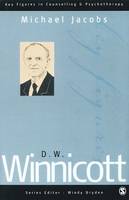- EAN13
- 9781446225967
- Éditeur
- SAGE Publications Ltd
- Date de publication
- 31/10/1995
- Langue
- anglais
- Fiches UNIMARC
- S'identifier
Livre numérique
-
Aide EAN13 : 9781446225967
-
Fichier EPUB, avec DRM Adobe
- Impression
-
8 pages
- Copier/Coller
-
8 pages
- Partage
-
6 appareils
45.67 -
Fichier EPUB, avec DRM Adobe
`The importance of Michael Jacobs' book lies in his attempt to convey...
Winnicott's profound influence.... Jacobs rightly delights in the creativity
and imagination of his subject and illustrates these with numerous quotations
and descriptions from Winnicott's writings.... What is conveyed throughout the
book is the essence of Winnicott.... [whose] gift was to make psychoanalytic
language, methods and concepts more widely available, accepted and appreciated
to a nonpsychoanalytic world' - British Psychological Society Counselling
Psychology Review
One of the best-known British psychoanalysts, D W Winnicott attracts the
interest of counsellors and psychotherapists far beyond the strict
psychoanalytic tradition in which he was trained. He coined many phrases that
have entered the discourse of therapy, such as `good enough mother',
`transitional object' and `facilitating environment'. Winnicott has had a
profound impact on research into the mother-baby relationship, and his
unorthodox manner and sparkling writing style have attracted enthusiastic
acclaim.
In this book, Michael Jacobs summarizes Winnicott's life and explains his
major theoretical concepts. He also rigorously evaluates his practice as a
clinician - for example, the holding and management of deeply regressed
patients. While highlighting Winnicott's brilliance and creativity, Jacobs is
not afraid to scrutinize his contributions more critically. He also discusses
criticisms others have made of Winnicott, notably within the psychoanalytic
movement. The final chapter assesses the influence of Winnicott's thinking in
other countries as well as in Britain.
Winnicott's profound influence.... Jacobs rightly delights in the creativity
and imagination of his subject and illustrates these with numerous quotations
and descriptions from Winnicott's writings.... What is conveyed throughout the
book is the essence of Winnicott.... [whose] gift was to make psychoanalytic
language, methods and concepts more widely available, accepted and appreciated
to a nonpsychoanalytic world' - British Psychological Society Counselling
Psychology Review
One of the best-known British psychoanalysts, D W Winnicott attracts the
interest of counsellors and psychotherapists far beyond the strict
psychoanalytic tradition in which he was trained. He coined many phrases that
have entered the discourse of therapy, such as `good enough mother',
`transitional object' and `facilitating environment'. Winnicott has had a
profound impact on research into the mother-baby relationship, and his
unorthodox manner and sparkling writing style have attracted enthusiastic
acclaim.
In this book, Michael Jacobs summarizes Winnicott's life and explains his
major theoretical concepts. He also rigorously evaluates his practice as a
clinician - for example, the holding and management of deeply regressed
patients. While highlighting Winnicott's brilliance and creativity, Jacobs is
not afraid to scrutinize his contributions more critically. He also discusses
criticisms others have made of Winnicott, notably within the psychoanalytic
movement. The final chapter assesses the influence of Winnicott's thinking in
other countries as well as in Britain.
S'identifier pour envoyer des commentaires.

